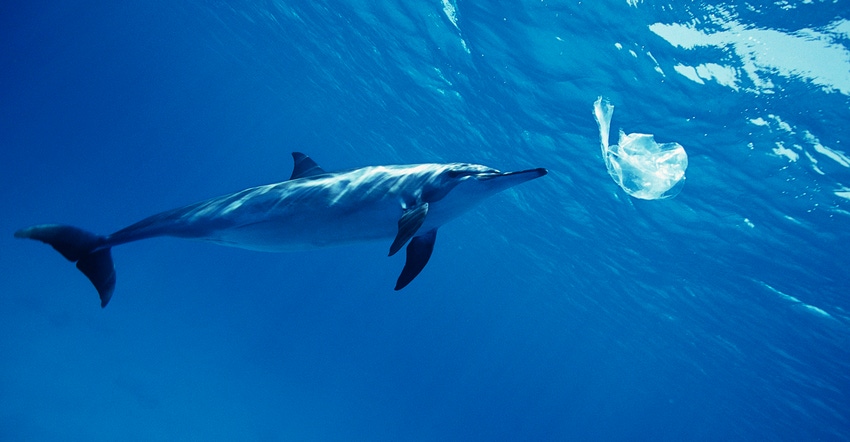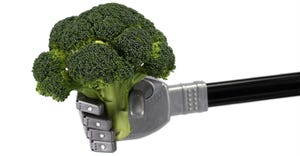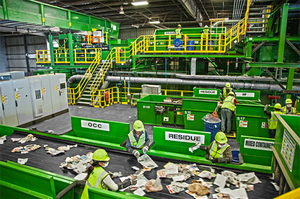
That single-use plastic bags harm the environment and disrupt recyclers’ operations is not breaking industry news. But what’s new in the headlines is what’s going on in the race to find innovative, sustainable alternatives to these convenient but short-lived commodities with long-lasting consequences. Bags derived from seaweed. “Borrowable bags.” Apps to incentivize shoppers to reuse bags that also tell the story of their impact. These are some of the novel ideas gaining traction.
Just last year 450 problem-solvers entered their pet projects in the Beyond the Bag Innovation Challenge, launched by the Consortium to Reinvent the Retail Bag, managed by Closed Loop Partners. Nine of these models were chosen as winners under one of three categories: Reuse and Refill; Enabling Technology; and Innovative Materials.
Read on to learn about three of these alternatives to the infamous petroleum-based bag; the minds behind the innovations; and what’s happening with their forward-thinking ideas now.
Borrow-a-Bag by ChicoBag
Through this model customers borrow sanitized, reusable bags at retail store check-outs. Each bag has a unique serial number that can be scanned using radio frequency identification (RFID) or quick response (QR) code technology. Consumers earn points and also get electronic reminders to use the bags.
How it works is that once customers borrow a ChicoBag, they download Internet of Things (IoT) software company 99Bridges’ app, and register the bag. Every time it’s reused at a participating store, it’s scanned, enabling points to be tallied and for customers to earn rewards.
While the digital piece is the work of 99Bridges, ChicoBag designed and manufactured the bag, set up and manages the washing infrastructure. Durability and sustainability were key considerations. There are no seams at the major stress points (bottom of bag and top of handles). And ChicoBag contracts with a commercial laundry service to clean them and keep them in circulation.
ChicoBag and 99Bridges are looking to take the technology further, exploring the use of push notifications based on geofencing. Through this software users could get a reminder whenever their device enters or leaves a particular space. So they could get notifications for example from the parking lot if they leave their bag in the car, says Andy Keller, president, Chicobag Company.
“On the face, our solution allows shoppers to borrow bags. However, it is more than that. It’s a system that leans into the reality that humans are often forgetful and slow to adopt new habits. Once a shopper borrows a bag, they are incentivized to keep using it, and are shown the impact they are making,” Keller says.
Over its lifetime this alternative is estimated to help eliminate use of 1,560 single-use bags.
“This is a lot of plastic not being used. The carbon footprint of each plastic bag is about 30 grams of C02 equivalent (Co2e). The carbon footprint of our ChicoBag Vita, is 1,628 grams of Co2e. When you do the math, you end up not releasing 45,172 grams of Co2e into the atmosphere,” Keller says.
EON’s Digital ID Technology
EON brings individual reusable bags online with a cloud-hosted digital identity. Now each bag can be followed from production through its whole first useful life and beyond. The digital identity is associated with the physical bag via data carriers (RFID, QR code, Bluetooth, etc). This ID is in alignment with the CircularID Protocol, which is the global language for connected products in the circular economy and allows data on each bag to be shared and exchanged with recyclers, customers, and brands.
Customers connect directly to their reusable bag via their mobile devices and can access resources and rewards.
Retailers can identify, track, and manage bags through reverse logistics. They can also connect directly to customers to drive engagement and program success.
And recyclers can access data for identifying, sorting, and recycling the materials. Additionally, they can measure recycling rate and impact.
Natasha Franck, EON founder and CEO, notes that many reusable bag programs today are met with limited success as the bags are commonly lost once they leave the hands of the customer.
“Without any ongoing connection to the customer and/or bag, retailers fail to drive the behavior change essential for intended circular impact. Also, without data about products and materials, recyclers are often unable to sort, recycle, or upcycle. So reusable bags end up in landfill,” Franck says.
“By digitizing products with EON, every item now has a digital footprint, and can be stewarded through a sustainable and data-driven lifecycle – from production through customer use, reuse, resale, next-life and regeneration."
PlasticFri’s Biobased Bag
The invention is a proprietary technology leveraged to make a biomaterial that looks and performs like conventional plastics but is derived from plant resources such as agricultural waste and nonedible plants.
Some of these feedstocks include potato cull, maize/corn husks, wheat straw, sugar cane and rice straw. According to Allen Mohammadi, PlasticFri CEO and co-founder, the materials are 100% compostable within less than 90 days, and this alternative results in 90% less CO2 emissions than plastic.
“We have chosen to use agricultural waste and non-edible plants in order to have a more sustainable and circular approach. An approach where we are not competing with the food chain—we are essentially transforming renewable resources to biobased products while replacing fossil-based plastics,” Mohammadi says.
The technology, which he says can produce alternatives at a competitive price to plastics, has been tested, validated, and certified according to European standards, which look at biodegradability, disintegration, eco-toxicity, and heavy metal content.
Currently the Swedish company is undergoing lab and field testing in the United States.
Conventional plastics are made from petroleum and stay in the environment up to 1,000 years. By 2050, the oceans could have more plastic than fish. We are on a mission to change that,” Mohammadi says.
These three innovators are joined by Domtar, Fill it Forward, GOATOTE, Returnity, SmartC, and Sway as winners of the Beyond the Bag Challenge. Their ideas have been piloted at CVS Health, Target, and Walmart stores and now the companies will begin working with the Consortium to prototype, refine and test their designs with the ultimate goal to scale them.
“To permanently eliminate the 100 billion single-use plastic bags currently used every year in the U.S., we are working collaboratively to build retail solutions that better meet customer needs while lessening the impact on the environment. By testing new bag innovations in-store, we gain valuable insights that allow us to iterate quickly and expand to more communities," says Kate Daly, managing director of the Center for the Circular Economy at Closed Loop Partners.
For an inside peek at the remaining six innovations click here.
About the Author(s)
You May Also Like




